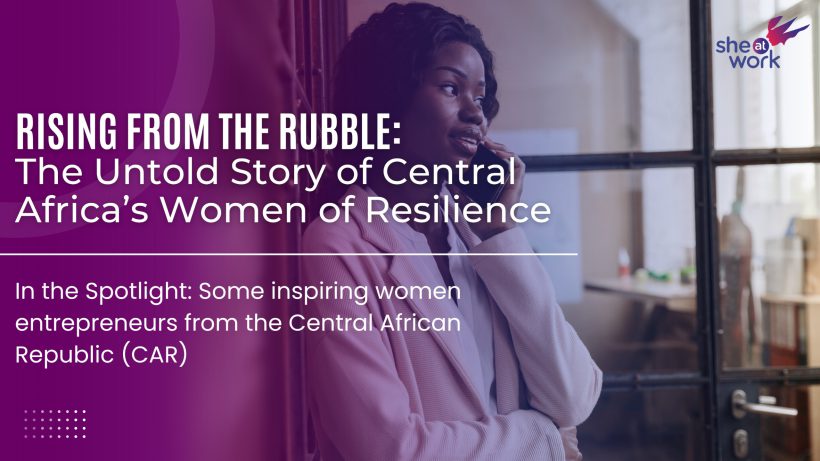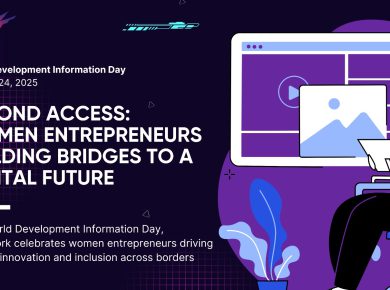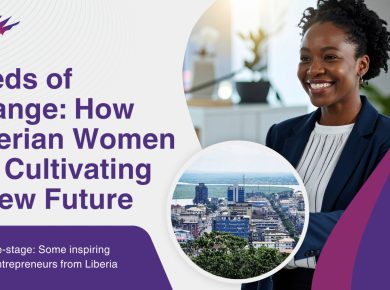In the Spotlight: Some inspiring women entrepreneurs from the Central African Republic (CAR)
#WomenEntrepreneurs #CentralAfricanRepublic #CARWomen #AfricanInnovation #ResilientWomen #EmpowerHer #WomenInBusiness #RiseOfWomen #EntrepreneurshipInAfrica #SheLeadsAfrica
In the heart of Africa, the Central African Republic (CAR) stands as a nation of paradox – endowed with vast natural wealth in agriculture, forests & energy, yet struggling under the weight of fragility and poverty. The years of crisis between 2013 and 2015 devastated its economy, shattered infrastructure, and paralyzed public services. However, amid this turbulence, a powerful force has quietly emerged — the women entrepreneurs of CAR — rebuilding lives, families & communities from the ground up.
Contrary to its shaky background, CAR is known as “the Switzerland of Africa” due to its central location and beautiful, natural landscapes.
Women in CAR have long been the backbone of the informal economy. Whether through small-scale farming, market trading, or crafts, they have turned limited resources into opportunities for survival and growth. In rural regions, women cultivate crops like maize, sesame, and palm oil, often within cooperatives that strengthen both livelihoods and food security. In towns and villages, others engage in small trade, selling goods in local markets, or offering community-based services – all while managing households and nurturing the next generation.
Women Entrepreneurs Fueling Hope in the Heart of Chaos
Their ventures may be modest, but their impact is monumental. Women reinvest earnings into education, healthcare, and nutrition, creating ripple effects of progress. Yet, barriers persist – limited access to finance, education, and property rights continue to hold them back. Customary laws often prevent land ownership, depriving them of collateral for loans, while gender bias and instability hinder growth.
How the Women of Central Africa are Rewriting the Rules of Survival
Still, these women remain undeterred. Supported by partners like the Agence Française de Développement (AFD) and various international initiatives, they are charting a new path – one defined by resilience, innovation, and hope. Their stories echo the larger dream of a nation striving for reconciliation, inclusion, and empowerment, where women are not just participants in recovery, but leaders of transformation.
Let us shine a light on some inspiring women entrepreneurs from the Central African Republic (CAR).
- Marie-Claire, Agro-Innovator from Bangui
Marie-Claire grew up in a small rural village outside Bangui. Her family was involved in farming maize and palm oil. Few formal schooling opportunities exist there, so she joined an agricultural association and learned the best practices through local cooperative training.
Seeing the potential in value-addition, she began processing palm oil locally rather than selling raw produce. Then she invested in small equipment – thanks to a microgrant from an international NGO, and improved sanitization and packaging.
Her workshop now supplies refined palm oil to markets in Bangui and neighboring areas, fetching higher prices and creating jobs for other village women. She now plans to invest earnings into health and education for her children. Besides, she is also part of a mentoring circle organized through the Ministry of Women’s Entrepreneurship, which gives her access to networks and business‐skills training.
- Aicha, Market Trader & Handicraft Designer
Aicha is a single mother living in a suburban area of CAR’s capital. First, she began with selling vegetables and foodstuff in local markets. But with time, she taught herself crafting traditional handicrafts -woven baskets, beadwork, and gradually combined trade with artistry.
She joined a local women’s association that connected her with NGO partners offering short business training workshops. One such partnership introduced her to micro-finance, allowing her to purchase better raw materials and employ young women in her neighbourhood.
She also uses her social ties to sell her crafts through tourist outlets in Bangui and via small online platforms. She bravely adapted to the situation when conflict disrupted supplies in 2019, and she started by making goods from locally sourced materials. Her resilient attitude, combined with incremental improvements in product design, has made her business both culturally meaningful & financially sustainable.
- Melanie set up Women’s Literacy Association
Melanie in Bangui, Central African Republic (CAR) began by being motivated by her faith and the difficulties she’s faced, and when she got equipped by training from Tearfund, she moved ahead. Her next wish is to set up a company that trains women in her community in the Central African Republic (CAR) so that they can earn an income each month, freeing themselves from cycles of poverty.
Inspired by the women in The Bible, who strive through their manual activities, and ensure their families are not hungry, she strongly notes that the women here want their country to flourish. This was her observation.
Living together with her children and grandchildren, she supports her family through her small business by selling various goods. Between her husband and herself, over time, they managed to buy land and build a home. But what really motivates her, is being able to lift up the women around her.
She lives in CAR, has seen first-hand the life-changing power of education for women and girls in her village.
What is prominent and relevant is that when she saw the lack of opportunities for women in her neighbourhood, she became determined to take some action. She invited unemployed women into her home to learn and support each other. With support from Tearfund and their local church, they set up a women’s literacy association where they could learn to read and write.
- Portia Deya Abazene, President of the Federation of Women Entrepreneurs of CAR
Portia Deya Abazene, President of the Federation of Women Entrepreneurs of CAR, highlighted the role of women in driving the country’s economic recovery.
She noted that despite legal frameworks guaranteeing equality, women in CAR represent only 15.5 percent of business owners in some sectors.
In the past two years, her organization has facilitated training for more than 2,700 women who received education in leadership, digital marketing and finance. She disclosed that CAR cannot reach its full potential as long as more than 51 per cent of its population, which is women, who remain marginalized.
Looking ahead, she feels that international support is needed. She insists that the allocation of timely and adequate resources remains critical to improving the lives of the Central African people.
With elections on the horizon in December 2025, and security threats persisting, it is critical to support CAR’s path to stability.
https://peacekeeping.un.org/en/central-african-republic-faces-ongoing-challenges-ahead-of-elections
- Rachel Walambo & Ashta Ganya
Rachel Walambo and Ashta Ganya are community leaders in the Central African Republic (CAR). What they both do is help manage a neighborhood borehole in the town of Ndele. They are involved in rebuilding their community after a period of violent conflict.
Both women are part of the committee that oversees the operation of the water borehole. They are busy managing a UNICEF-installed borehole in the neighborhood of Kpetene.
As far their business role goes, they are active in raising awareness about water management. Walambo serves as the committee’s treasurer, while Ganya supervises the site’s cleaning.
So, as community organizers, they play a crucial role in bringing people together to cooperate and lift their community out of poverty. Their work focuses on helping women and providing support for vulnerable children. The challenges for women giving birth in rural areas is one of the difficult situations they witness.
They got some recognition, fortunately. Their work was highlighted in a UNICEF article published in February 2024, which dwelt on their efforts to create a more dignified life for their community.
https://www.unicef.org/car/en/stories/women-leading-communities-central-african-republic










